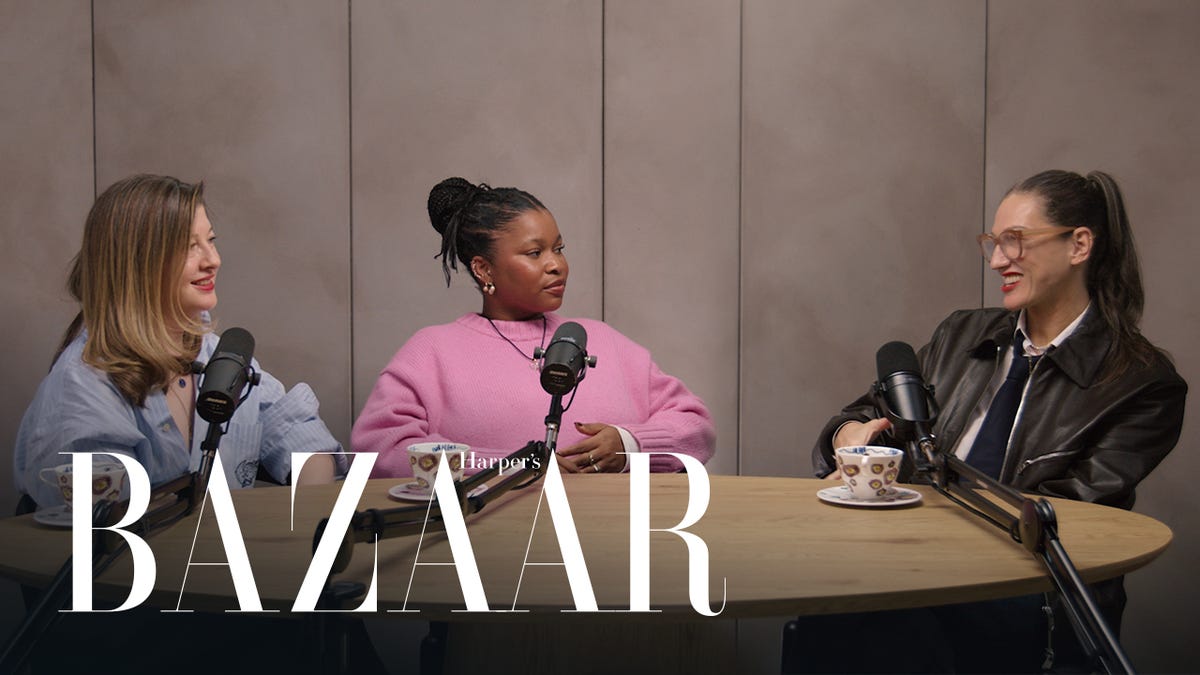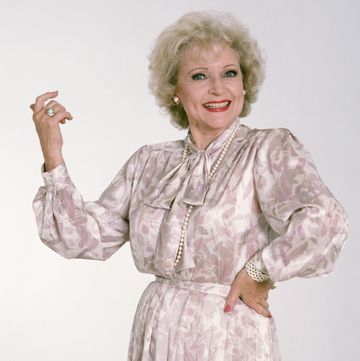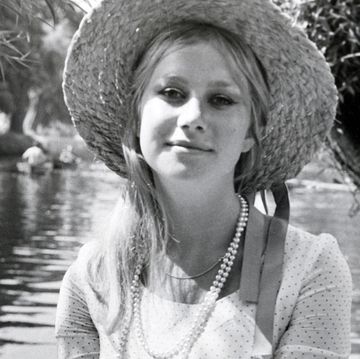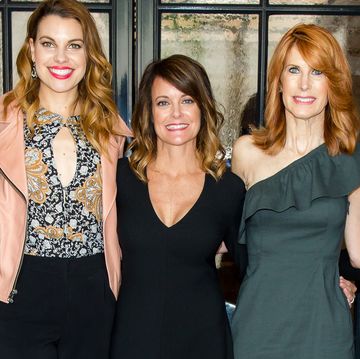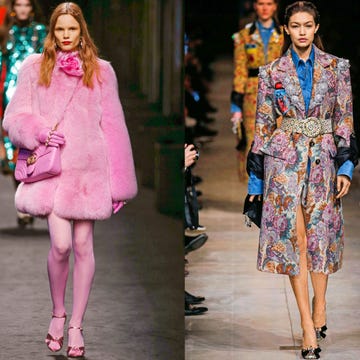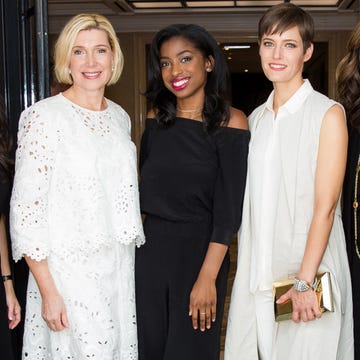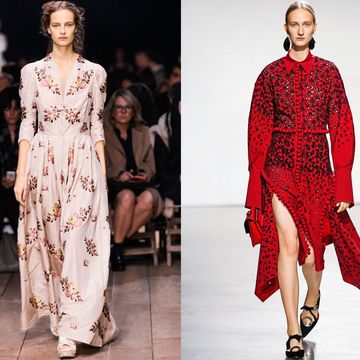RITA WILSON: I remember 20 years ago when you were filming Forrest Gump with Tom [Hanks], and you had just had a baby. There you were, shooting a lead role—and nursing too.
ROBIN WRIGHT: Yeah, I think Hopper [Wright's son with ex-husband Sean Penn] was only a month or five weeks old when we started.
WILSON: He was tiny! But you are going through so many amazing changes right now: Your kids are growing up, you won a Golden Globe for House of Cards, and you're engaged to the wonderful Ben Foster. What's it like being engaged again? Does it feel different now than it did when you were younger?
WRIGHT: I don't even know how to put it into words. He's my man. That's all I can say about it. He's my man.
WILSON: What are your thoughts on being with a younger man? People make such a big deal out of it.
WRIGHT: It's such a shame that society has this fixation because if it was the inverse—a younger woman with an older man—not many would bat an eye. I think we roll our eyes at older men with younger women and go, "Oh, he's going through a midlife crisis and he just needs a young hot body." That's the cliché. But an older woman with a younger man—it's almost judged the way different religions judge doctrines of other religions. It's so intense. And it manipulates people. It's very infectious.
WILSON: Speaking of relationships, your character on House of Cards is so incredibly layered. How did that role come to you?
WRIGHT: They really tried to sell me on it for hours. We were in Stockholm shooting The Girl With the Dragon Tattoo, and David Fincher [director and Cards executive producer] basically sold me on this new medium of television. I told him I wanted to try directing, and when he said yes to that, I was in.
WILSON: So you were very clear about the things that you wanted out of it from the beginning, like directing.
WRIGHT: It felt like a safe haven to try it. The idea of directing a film right now is overwhelming. Maybe I'm not ready. But directing an episode of the show feels like going to college in the best sense of what going to school means. I'm getting an education, I'm able to fail, there are support systems, and I can make my grade better with each episode. [Laughs] With a film, once it's in the can you're effed. But with House of Cards you really get to prepare and be a collaborative member of a team and improve with every scene.
WILSON: How have the kinds of roles and projects that you're attracted to changed throughout the years? You're very selective about material. What do you look for?
WRIGHT: I always look for variety. I always want to run the gamut. Play a character who's completely far-out and fabulous, and then the very understanding wife who's got her husband fucking around on her. But the problem is, I was typecast for most of my career and still am today. I always get offered the role of wounded, soulful, understanding mother and wife.
WILSON: Me too! It's like, really? You can't write anything else than this warm, understanding, nurturing, soulful wife/mother/sister/daughter/friend?
WRIGHT: Agreed. I'm moving away from sad, dour women.
WILSON: How do you approach dressing differently now than you did when you were younger?
WRIGHT: I've always been a T-shirt, Levi's, leather jacket, and combat boots kind of girl. But my wardrobe changed dramatically when I cut my hair a couple of years ago. I'd been going back and forth between two different films and had to change my hair color each time, and after that my hair looked like an old spool of cotton, so I chopped it off. I love it! It's my grown-up haircut. I can't imagine having long hair again. But the shape of a collar is very different when you have short hair and your neck is exposed. Turtlenecks are good.
WILSON: I can't wear a turtleneck because, you know—hot flashes. Sorry! I would have to rip it off my body.
WRIGHT: I'm with you. Those are bad.
WILSON: What's your guilty pleasure? How do you indulge?
WRIGHT: I'm a hedonist when it comes to culinary delights. Ben and I appreciate good meals and great wine, and we love to look through the Michelin Guide and find those gems, like the French Laundry in Napa.
WILSON: If you could speak to yourself when you were younger, what would you say?
WRIGHT: Stop being so hard on yourself.
WILSON: Do you and your daughter, Dylan, have similar taste in clothes?
WRIGHT: Dylan has stolen half my closet. I was at her house a couple of weeks ago and I was like, "There's that sweater!" We do wear the same things. Dylan is so bright and has an amazing ability to write. She understands the arc of a story, and I think she will get into writing, directing, producing, whatever. The acting and modeling thing right now? She's just exploring. She wants to make some money and feel it out. Learning what you don't want is how you know what you do want.
WILSON: I wish I could have said no to a bunch of stuff when I was young, but I was always like, How am I going to make the rent check? It was really hard to say no to a job. But I think the women's movement has really helped our daughters have a completely different take on what they can do.
WRIGHT: They're empowered. This millennial group—they've got balls. They really don't have that self-flagellation in the same way we did. That's my perspective, at least. When I sit back and look into the aquarium of the generation that our kids are part of, they're very decisive about important things. Yes, they're kids, and they're flaky in plenty of ways, but I see a difference.
WILSON: They know exactly what they will and will not do. And then as a parent you have to be like, "No, you've still got to get a job! While you're pursuing your art, get a job!"

